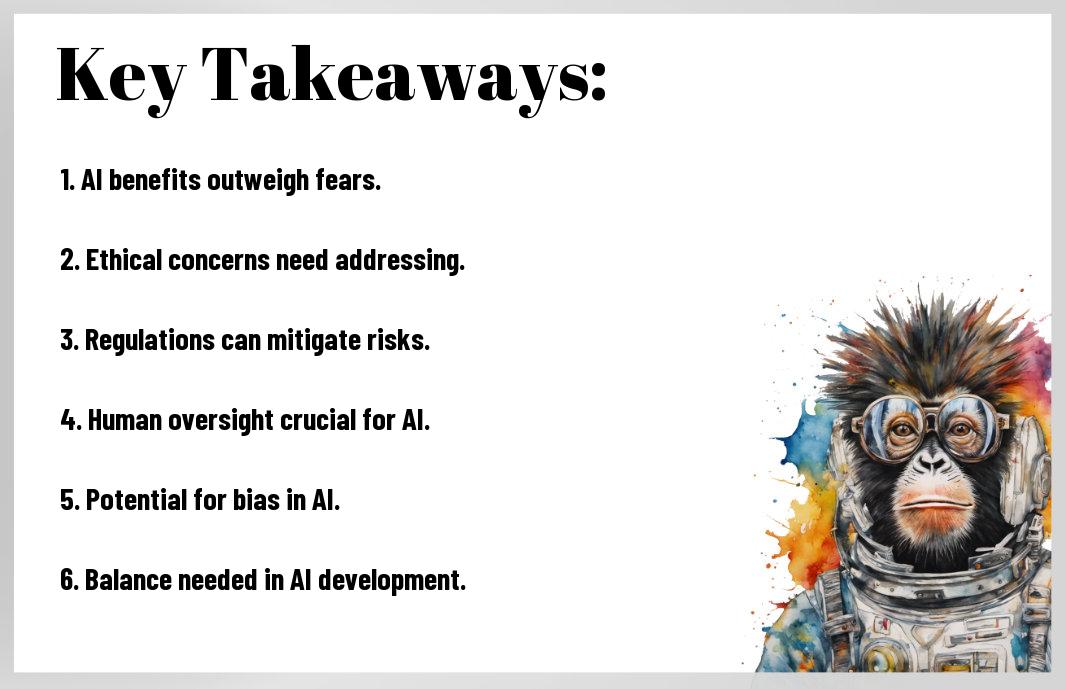Over the years, discussions around artificial intelligence have ignited both curiosity and anxiety. As society probes deeper into AI, questions arise about the real extent of its impact on our lives. Are our fears of AI well-founded, or are they blown out of proportion? Let’s explore the nuances of this complex topic and unravel the truth behind our perceptions of artificial intelligence.
The Rise of AI Anxiety
Historical Context of Fear and Technological Advancements
One cannot ignore the historical context of fear surrounding technological advancements. From the concerns of the printing press to the apprehensions about the industrial revolution, each new innovation has brought about its fair share of anxieties. The fear of the unknown and the potential implications on society have always been prevalent in the face of progress.
Current State of AI Development and Its Implications
An increasing number of experts warn about the potential dangers of AI advancements. Issues such as job displacement, loss of privacy, and even existential threats have been raised. The rapid pace at which AI is evolving and its potential to surpass human intelligence in the near future has fueled concerns about its consequences.
The current state of AI development is a double-edged sword. On one hand, AI has the potential to revolutionize industries, improve efficiency, and enhance our quality of life. However, on the other hand, the unchecked growth of AI without proper ethical guidelines and regulations could lead to unintended consequences. It is crucial for us to carefully navigate this fine line to ensure that AI serves humanity rather than subjugating it.
Justified Fears of AI
Now, in a world where AI continues to advance rapidly, it is crucial to address the justified fears surrounding its development and implementation. A recent article titled “The fear of AI is overblown—and here’s why” sheds light on the concerns that many hold regarding artificial intelligence.
Job Displacement and Economic Instability
For some, the fear of AI lies in its potential to displace human workers, leading to economic instability and increased inequality. As AI systems become more advanced, there is a valid concern that certain job sectors may see a significant decline in employment opportunities, leaving many individuals grappling with uncertainty about their future livelihoods.
Bias and Discrimination in AI Decision-Making
Discrimination is another legitimate concern when it comes to AI technology. This fear is not unfounded, as AI systems rely on data that may inadvertently perpetuate biases present in society. Without proper safeguards and regulations in place, there is a risk that AI decision-making processes could reinforce existing discriminatory practices, further marginalizing already vulnerable populations. It is crucial to address these issues to ensure that AI is developed and utilized in an ethical and equitable manner.
Exaggerated Fears of AI
Unlike Who’s afraid of artificial intelligence?, some fears surrounding AI are exaggerated, leading to unnecessary panic and misconceptions.
The Misconception of AI Autonomy and Consciousness
With AI, there is a common misconception that machines possess autonomy and consciousness similar to humans. The reality is that AI operates based on algorithms and data input, lacking true consciousness or intentions to harm.
Overstating the Risks of AI Takeover
Autonomy
Some critics exaggerate the risks of AI takeover, envisioning a dystopian future where machines dominate humanity. In reality, AI is created and controlled by humans, and safeguards can be implemented to prevent any potential risks of takeover.
Takeover
It is important to understand that AI is a tool created by humans to assist in various tasks, not an autonomous entity seeking to overthrow its creators. By addressing these exaggerated fears and focusing on the responsible development of AI, we can harness its potential for positive impact.
Summing up
Drawing together the arguments presented, it is evident that the fears surrounding AI are a combination of justified concerns and exaggerated misconceptions. While there are legitimate risks to consider, such as job displacement and ethical dilemmas, the potential benefits of AI should not be overlooked. By approaching this technology with caution and implementing ethical guidelines, we can harness the power of AI to improve our lives and society as a whole.





